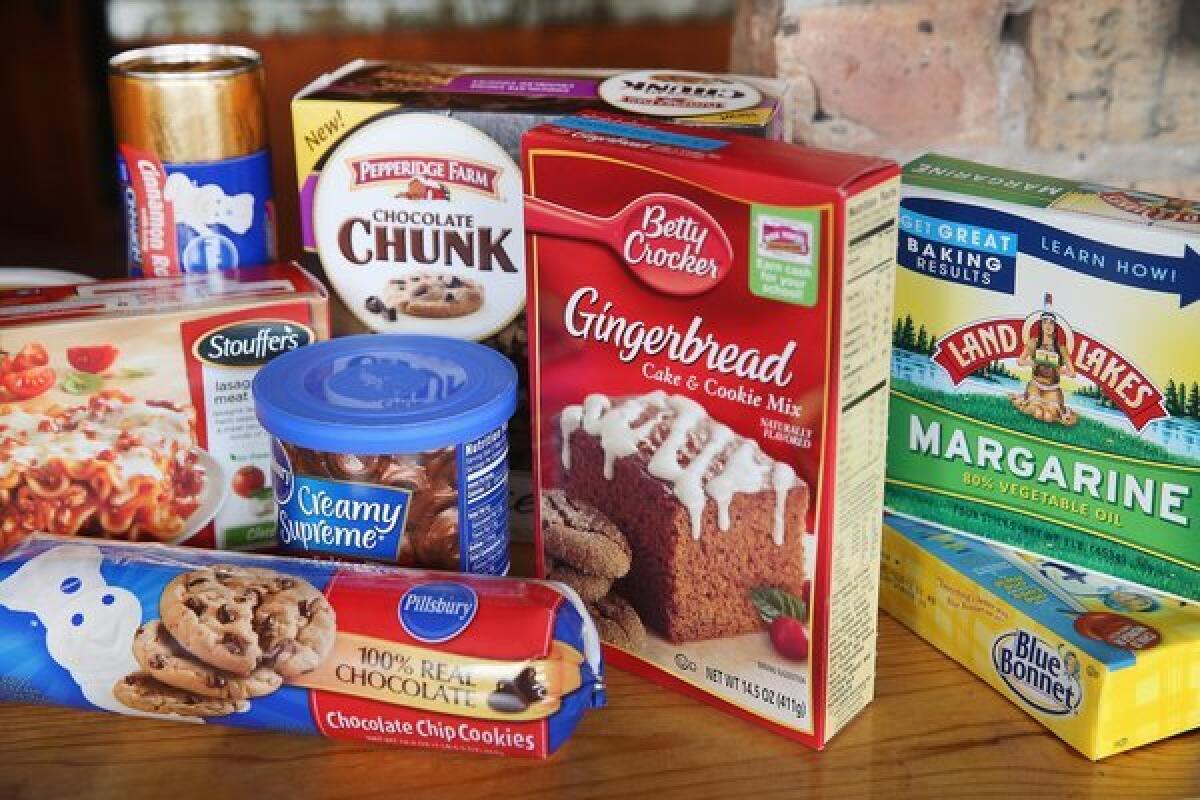Healthcare providers applaud FDA move to ban trans fats

Healthcare providers voiced heavy support Thursday for a U.S. Food and Drug Administration plan to declare trans fats an unsafe food additive.
âThis is long overdue,â said Kristin Kirkpatrick, a dietitian and wellness expert at the Cleveland Clinic in Ohio. âWeâre hoping this will actually reduce heart attacks in our country and reduce overall deaths.â
The majority of trans fats are found in processed foods, and occur when food manufacturers add hydrogen to liquid oils.
These partially hydrogenated oils, or PHOs, can extend the shelf-life of foods, or make them more appealing to consumers. In coffee creamers, trans fats create creaminess, while in crackers, they create a buttery or flaky texture.
Consuming trans fats, however, can boost bad LDL cholesterol levels, and reduce good, HDL cholesterol levels, thereby increasing the risk of coronary heart disease, experts say. Trans fats are also associated with weight gain and obesity.
âThey may make products taste better, but they donât appear to have any positive or beneficial nutritional value,â said Dr. Mark Urman, a cardiologist at Cedars-Sinai Heart Institute and board member of the American Heart Assn. âItâs clear that peopleâs health is not as good when theyâre taking in too many trans fats.â
RELATED: A brief history of artificial trans fats
In a statement released early Thursday, FDA officials said that due to documented health risks, they would remove PHOs from the list of food additives that are âgenerally recognized as safe.â
Citing estimates from the U.S. Centers for Disease Control and Prevention, FDA officials said that banning trans fats could help prevent 7,000 deaths from heart disease each year, and up to 20,000 heart attacks.
The FDAâs preliminary determination opens a 60-day comment period on the plan.
Among those health organizations that voiced support for the move was the American Medical Assn.
âBanning the use of artificial trans fats is a life-saving move that can help keep the public healthy,â said Dr. Patrice Harris, an AMA board member. âThe American Medical Assn. strongly supports the Food and Drug Administrationâs recommendation to eliminate one of the most harmful fats in our food supply.â
Kirkpatrick said her patients are often aware that trans fats are harmful, but are often confused by labeling conventions. Under current regulations, products can be listed as having zero trans fats if they contain 0.5 grams of the substances or less.
âThereâs two problems with that,â Kirkpatrick said. âNumber one, weâve never been able to determine how much is a safe amount to have, so even a small amount may be harmful to our health. Number two, weâve demonstrated as a nation that weâre not real good at portion control. The chances of only having 0.5 grams of trans fat are actually not that high if youâre going to eat a whole bag of something.â
Urman, of the heart association, said he too was pleased with the action, and hoped that it would help patients to make healthier decisions when it came to their diets.
âI think thereâs still some residual confusion about fats in general,â Urman said. âI think weâre starting to appreciate that not all fats are necessarily bad, especially when taken in moderation. Mono unsaturated fats, such as olive oil, appear to have beneficial effects and arenât necessarily bad for you.â
Urman said that while he was encouraged by the prospect of a ban on trans fats, he was also concerned about what might ultimately replace them.
âWe need to make sure itâs not replaced by something else thatâs not good for us,â Urman said. âThe main message ultimately has got to be about getting Americans to understand how to have well-balanced healthy diets. Itâs not just about avoiding the things that are bad for them; itâs also making sure they have a lot of the things that are good for them.â
As an example, Urman said the only thing people didnât need to be moderate about was their intake of fruits and vegetables.
âThe more fruits and vegetables you have the better, and the more variety you have the better,â he said.
ALSO:
A brief history of artificial trans fats
Study links obesity and early breast development in girls







